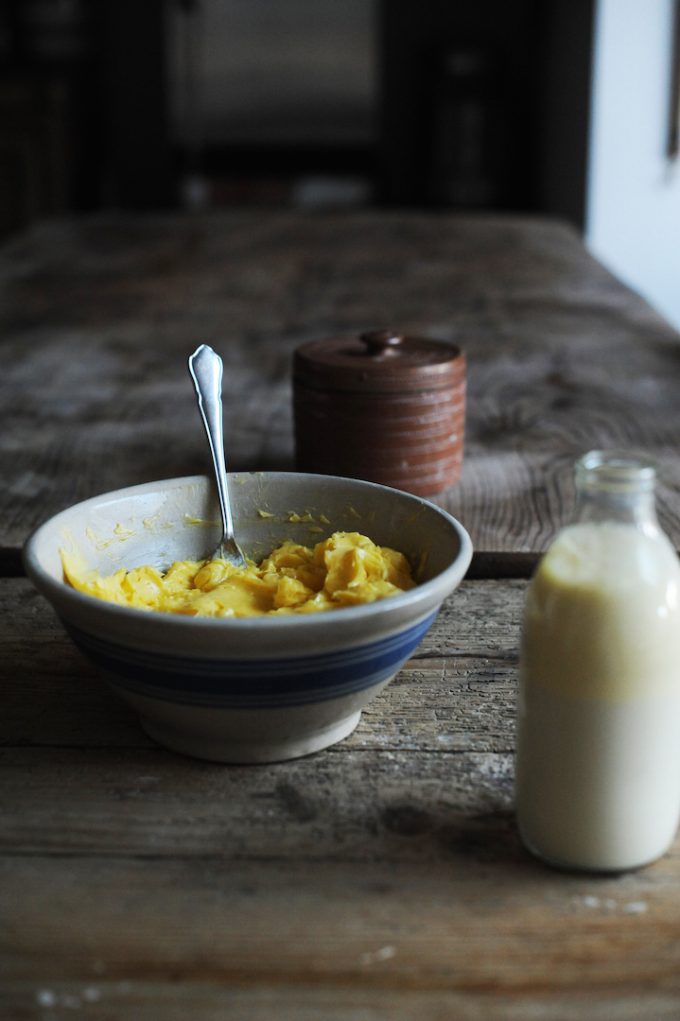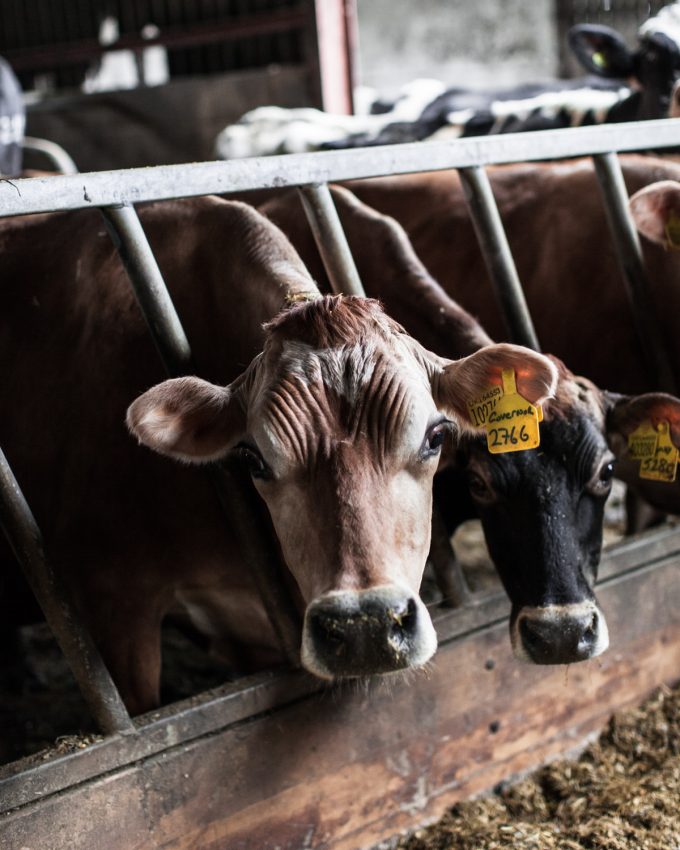
Butter is often seen as a simple spread, but at The Sourdough School, we treat it as a cornerstone of nourishment. When paired with wholegrain sourdough, butter becomes an essential part of a gut-friendly diet, especially when it’s crafted with intention. We’ve taken butter-making a step further, transforming it from something ordinary into something that actively supports gut health.
A New Kind of Butter: Cultured for Gut Health
Our process starts by inoculating cream with live cultures from yoghurt or kefir, allowing beneficial bacteria to flourish as the cream ferments. This isn’t just a nod to tradition; it’s about nourishing our gut on a whole new level. The fermentation process produces butyrate, a compound with remarkable effects on the gut lining, supporting everything from immune function to mental well-being. It also creates prebiotic oligosaccharides, which feed our beneficial gut bacteria, making this butter far more than the usual spread.
Why Grass-Fed, Organic Butter?
It might sound simple, but the quality of butter matters enormously. Grass-fed organic butter offers more of the nutrients that truly benefit us—like vitamin K2, omega-3 fatty acids, and conjugated linoleic acid (CLA)—which all play a role in reducing inflammation and supporting heart health. Unlike spreadable butters with added vegetable oils, which can disrupt gut balance, grass-fed butter supports the integrity of the gut microbiome.
Butter and Sourdough: A Perfect Pairing
The combination of cultured butter and wholegrain sourdough is about synergy. Sourdough’s fibre content feeds gut bacteria, encouraging them to produce compounds like butyrate, while the butter brings its own butyrate directly to the table. Together, they create a powerful, gut-nourishing combination that doesn’t just taste good—it actively contributes to a healthier, more balanced microbiome.
This approach to butter-making might seem revolutionary, but it’s about rethinking food as an active partner in health. With each spread of cultured parmesan butter on your sourdough, you’re not just adding flavour; you’re supporting a diversity of gut bacteria that plays a role in everything from digestion to immune health and even mood.
In short, this isn’t just butter. It’s a small but mighty step toward a healthier gut and a more resilient you.
The Benefits of Cultured Butter
This cultured approach to butter-making enhances both the flavour and the nutritional value:
- Increased Butyrate: The fermentation process naturally boosts the butyrate content, an SCFA that nourishes the gut lining, supports gut barrier function, and provides energy for cells in the colon.
- Prebiotic Formation: Through fermentation, oligosaccharides are formed, which act as prebiotics, feeding beneficial bacteria in the gut.
- Rich in Probiotics: By introducing live cultures, the butter itself contains strains of bacteria that can support a balanced microbiome when consumed.
Parmesan and Black Pepper Butter: Doubling the Nutritional Impact
For an added layer of flavour and nourishment, I grate parmesan into my butter, creating an amazing flavour of parmesan butter that’s packed with umami and additional nutrients. Parmesan cheese, particularly when aged, is high in beneficial compounds, including more butyrate and a rich source of protein and calcium. Adding a sprinkle of black pepper amplifies the flavour and may even improve digestion by promoting the release of digestive enzymes.
This parmesan and black pepper butter isn’t just about taste—it’s a functional spread that enhances the nutritional profile of your butter. Each component works together, offering extra doses of butyrate, beneficial probiotics, and prebiotic fibres, especially when spread on wholegrain sourdough.

Why Grass-Fed, Organic Butter Matters
To get the most nutritional benefits, we always use unsalted, grass-fed organic butter. Grass-fed cows produce butter with a higher concentration of vitamin K2, CLA (conjugated linoleic acid), and omega-3 fatty acids, which provide anti-inflammatory benefits and support cardiovascular health.
Supporting Gut Health Through Enhanced Dairy Choices
In addition to butter, other probiotic-rich dairy products like hard cheeses (e.g., parmesan), yoghurt, and kefir further support the gut by providing live bacterial cultures. The probiotics and prebiotics in these foods help foster a diverse and balanced gut microbiome, which is central to gut health and well-being.
Butter and Bread: A Gut-Nourishing Pairing
Butter and bread—especially when both are made with gut health in mind—create a synergy that nourishes the microbiome on multiple levels. The wholegrain sourdough provides the fibres needed to feed gut bacteria, while the cultured butter, especially with parmesan, offers direct sources of butyrate and beneficial bacteria. This combination not only enhances the flavour experience but also maximises the gut-supportive qualities of each bite, making it a simple, delicious, and profoundly nourishing addition to any diet.
The Takeaway
Making butter this way, with probiotic inoculation and the addition of parmesan and black pepper, is a beautiful example of how food can be crafted with both pleasure and health in mind. This approach represents our commitment at The Sourdough School to elevate each element of a meal, enriching it not only with flavour but with ingredients that nourish us deeply.



